Apart from meat, you need a rooster to run a flock having the laying hens and several other benefits.
The rooster wooes hens, dances around them, and calls them when he finds some food. The hens also crouch for the rooster, saying they have accepted his advances.
Still feeling confused about installing a rooster in the flock? Here are some surprising benefits that your rooster may bring to the flock of hens.
1. Flock Protection
Do you know roosters fight dogs, risking their own life?
I have often witnessed a rooster chasing and jumping on a dog in my homestead.
When the hens or flocks are around, roosters are always vigilant about predators in the air and on the ground, such as hawks, foxes, dogs, and snakes.
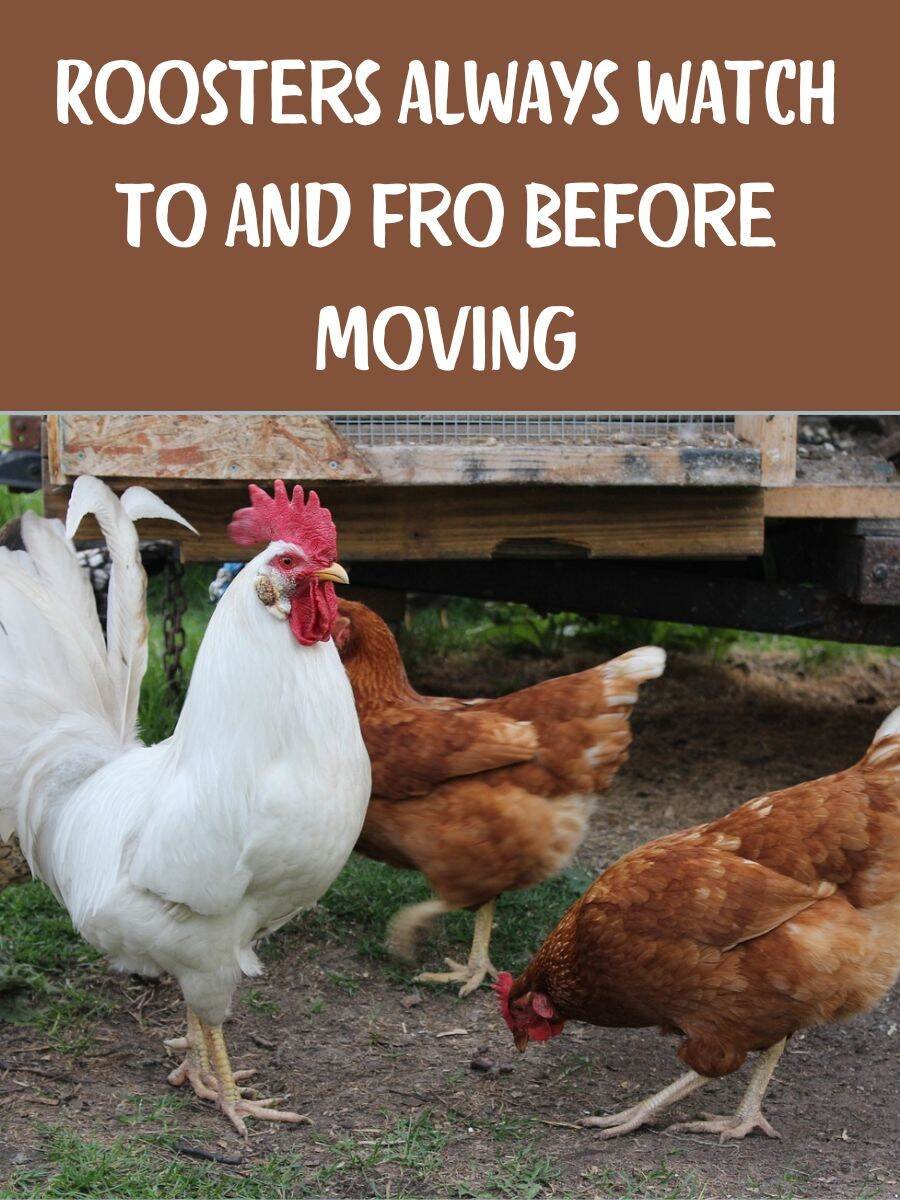
They always watch on hens and the flock restlessly for potential threats.
Cocks also scan around the nests of hens when they are laying eggs.
2. Boosting Flock Harmony
Male chickens act like leaders or bosses who maintain hierarchy and order in the flock.
They set a hen’s pecking order in the flock. There, a selected hen will be the head hen on the top, middle role, and bottom hens in the social order.
Middle and bottom hens follow the head hen which is responsible for flock safety, food search and keeping the peace in the flock.
So, rooster becomes a natural peacemaker to unite the chickens.
He helps guard the flocks from predators and solves disputes between the hens. They calm the aggressive behaviors of mates and stop them from bullying each other.
The hens know rooster’s role as protector and mediator and enjoy him around.
This helps reduce the stress and enhance the health and productivity of the flock.
3. Fertile Eggs for Breeding
Roosters are natural breeders that help hens lay eggs.
Depending on the breed, one rooster per 5–12 hens in the flock is recommended. Thus, roosters play a significant role in fertilizing eggs for hatching chicks.
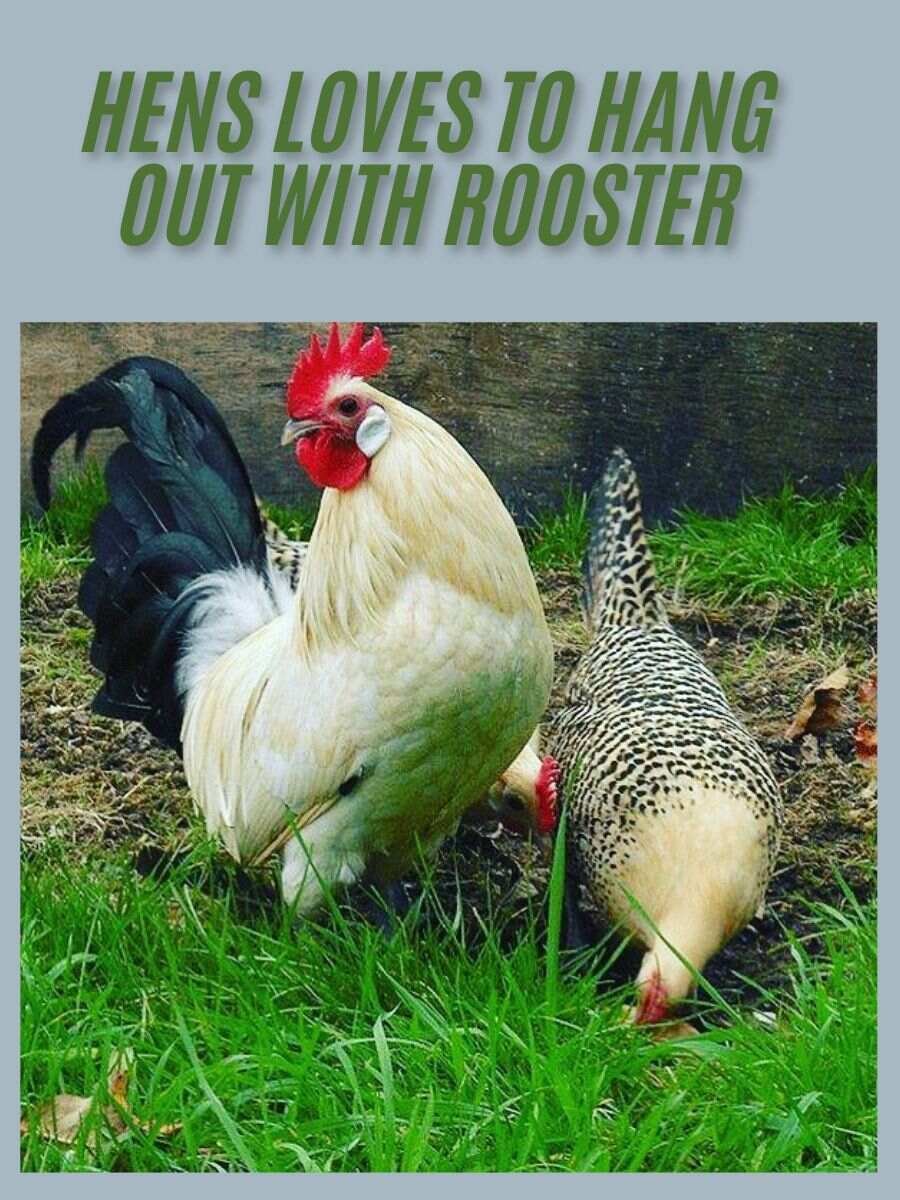
As soon as they are around 6 months old, they become fertile to breed.
This helps get you a good yield of eggs for profit or food.
If you can only raise 4-5 chickens, you need not worry about your breakfast omelet. If not, you can assign hens eggs for more future flocks.
Then, hens hatch eggs for several new roosters and hens for sustainable farms or homesteads.
4. Mimic Natural Flock
Did you know our ancestors domesticated the wild flock of jungle fowl that would include a rooster and hens?
They add the roosters to the backyard chickens to understand a natural flock structure or dynamics.
Hens always hang out with a polite, friendly rooster and one that respects the flock of hens. If he takes his responsibilities seriously, he will be popular in the group of ladies.
They will enjoy his presence, which helps create a sustainable flock.
5. Natural Alarm System
You must have noticed roosters nearby crowing only before sunrise. No need to set a wake-up alarm, right?
It is okay until they don’t disturb your neighbors’ sleep. 🥱
Their cock-a-doodle-doo is loud and alert, which helps other mates give signals for particular purposes.
Yes, they also crow to alert the flock and owner of potential dangers. For example, they might have seen predators and other roosters that they feel threatened.
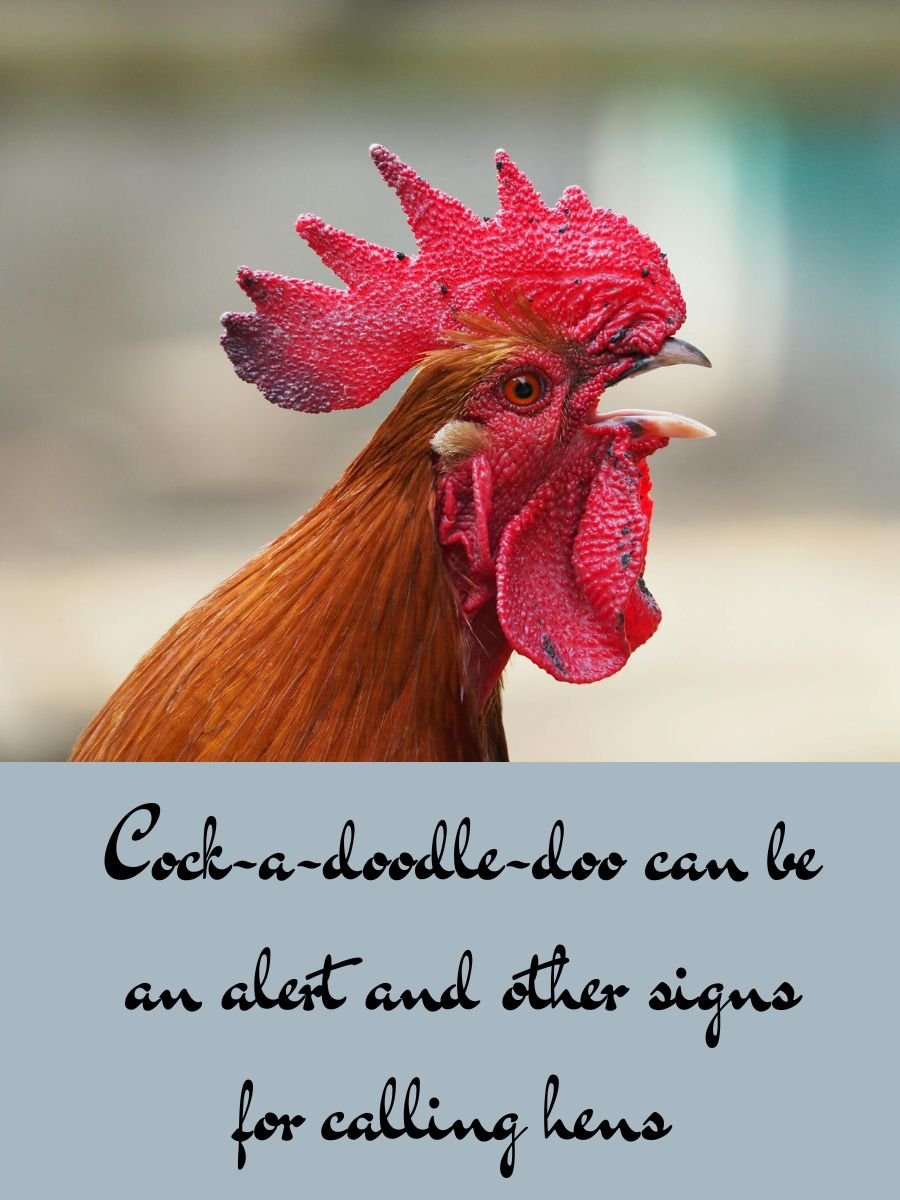
They also become vocal to announce their presence and dominance in the flock.
Roosters also communicate with their hens and mark their territory by crowing. They also react with their voices to other stimuli, such as wild birds, people moving around, etc.
Adding crowing roosters is beneficial in the free-range setups.
6. Help with Training Flock
When you allow your chickens for free-range, you may want to train them to come and go to coop.
In this situation, a rooster can help raisers. Ladies often see him as protector and guide and follow his instructions whenever he is around the flock.
If you can manage him to teach the coop is safe place at night, he will lead the flock to the same place.
Also, you can offer the snacks before the rooster on the ground. He will call the rest of the group for the food.
7. Beautiful Flock Aesthetic
Unlike hens, roosters are big, have larger body sizes, and produce a good amount of meat.
They also have vibrant plumage, larger combs and wattles, and elaborate tail feathers. These features attract hens and help roosters befriend them.
They always stand out in the crowd of hens that are of subdued color.
Thus, male chickens can become the centerpiece of the flock.
When the rooster grows with lustrous plumage, a giant body, and a crow, every owner feels pride and joy like me.
8. Pest Control Assistance
Chickens are excellent foragers which seek common garden insects and small pests. They voraciously hunt and eat beetles, mealworms, caterpillars, slugs, and grubs.
Your yard and garden remain free off pests that can destroy the produce.
This helps them access natural food if allowed free range. You can reduce the chicken feed or pallet cost while raising.
Roosters scratch through the soil and unearth their food using their feet.
Don’t worry; they have a strong appetite.
9. Smooth Transition of Role
Members are sometimes kept away from the flock due to illness, injury, or when they are broody.
Whatever the possible reason, owners need to add the new lady to the group. But will the flock be ready to accept the integration?
Hens are also competitive among themselves and get into squabble, especially when the head hen is removed.
Also, they will peck the new addition, so a rooster has to maintain the peace.
10. Increased Egg Laying Motivation
Roosters are very competitive in the flock and over-mate pullets and hens oftentimes.
They establish a pecking order within the flock and settle conflicts among them so they can focus on consistently laying eggs.
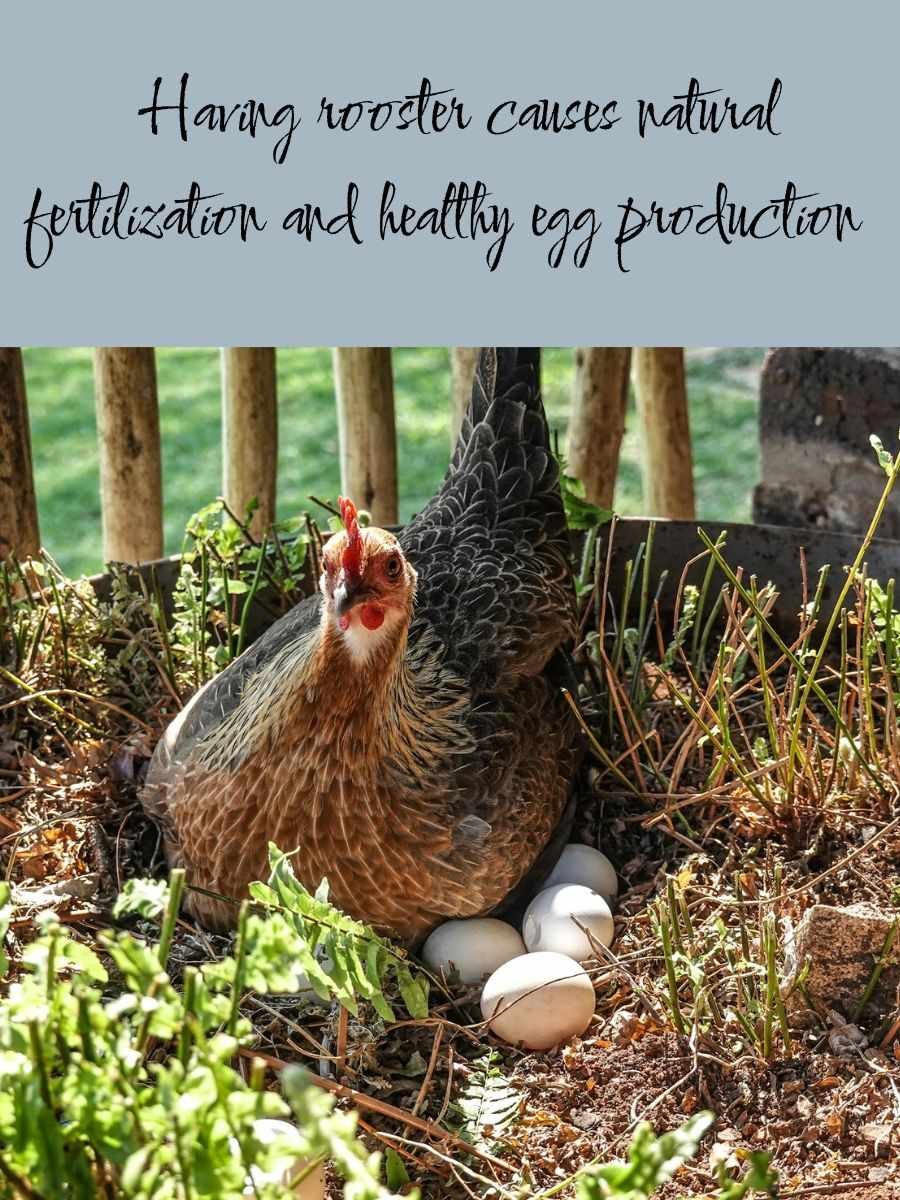
Besides, males roam around the layers, providing a sense of security.
Hence, the presence of a rooster can encourage hens to lay more eggs, offering psychological and environmental benefits.
11. Adds Diversity and Unique Personality
Do you think hens are entertaining to watch at a farm?
Try adding roosters to the flock and find diverse birds that have more vibrant looks. Unlike hens, they come in different breeds with colorful plumage to flaunt.
Also, they develop a unique personality.
For instance, they can be friendly, docile and downright cuddly, while others tend to be aggressive and fight everyone in the flock.
You can train them for the desired personality.
12. Educational Value for Families
Kids and adults can learn about rooster behavior and flock dynamics.
Roosters can teach the responsibility for protecting the group or clan, building a strong community, and resolving conflicts wisely.
They are an example of authority or leaders which manage the entire flock.
Besides, they crow and guide hens to food, water, and safe areas. Alertness is their great strength, and everyone should learn from it.
Kids can also learn poultry routines such as feeding chickens, collecting eggs, and cleaning the space.
They need not read about the biological process of chicken life, from egg hatching to laying eggs or harvesting.
Roosters also help homesteaders cut costs for artificial fertilization and invest in other projects, including backyard ponds or other farm animals.
Above all, you can learn the connection to nature.
13. Lively Homestead Atmosphere
I don’t feel the countryside or rural life until I see cows and herds grazing on the meadow or hear pigs and other animals yelling in the barn.
The sound of a rooster crowing adds charm to the homestead or farm.
Only you need to take care of the nearby residents. If your farm is located distant from residential area, it’s okay.
Not only their vocal is useful, but their appearance also gives eye pleasure to visitors. You have several different breeds with different colors to place in the farm.
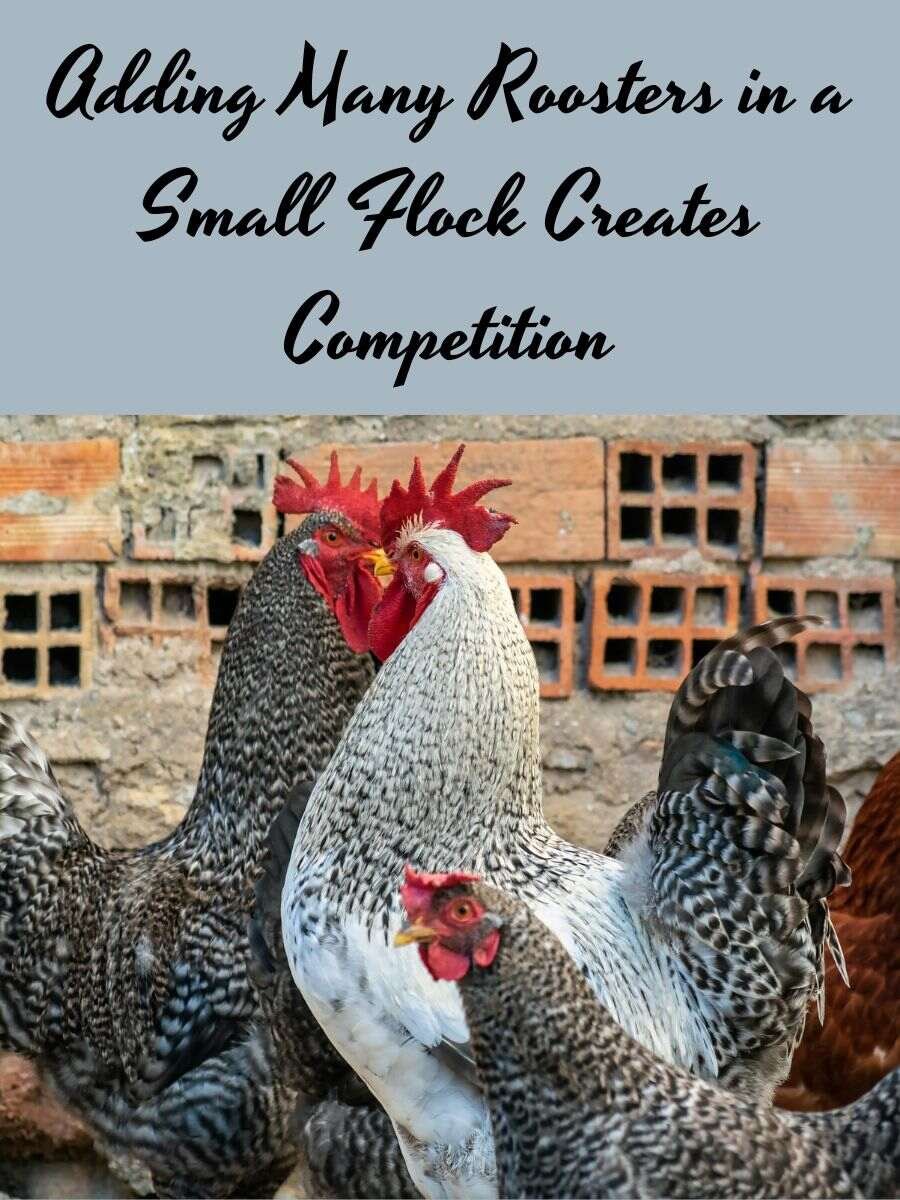
It creates a lively, vibrant environment where you can experience nature.
However, some urban and suburban regions don’t allow to keep roosters. Check if your local area has any of these laws and weigh some rooster disadvantages.
Final Thoughts
If you have a giant flock and need to add multiple roosters, choose friendly and docile ones. This helps reduce the aggression and competition among the roosters.
Give them separate perches to sleep off the ground. You can install new roosts for it.
It is difficult to introduce the rooster to hens in free range, so you need to place them in the wire cage for some days.



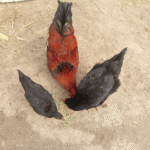
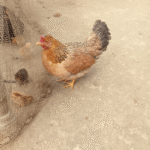
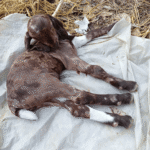



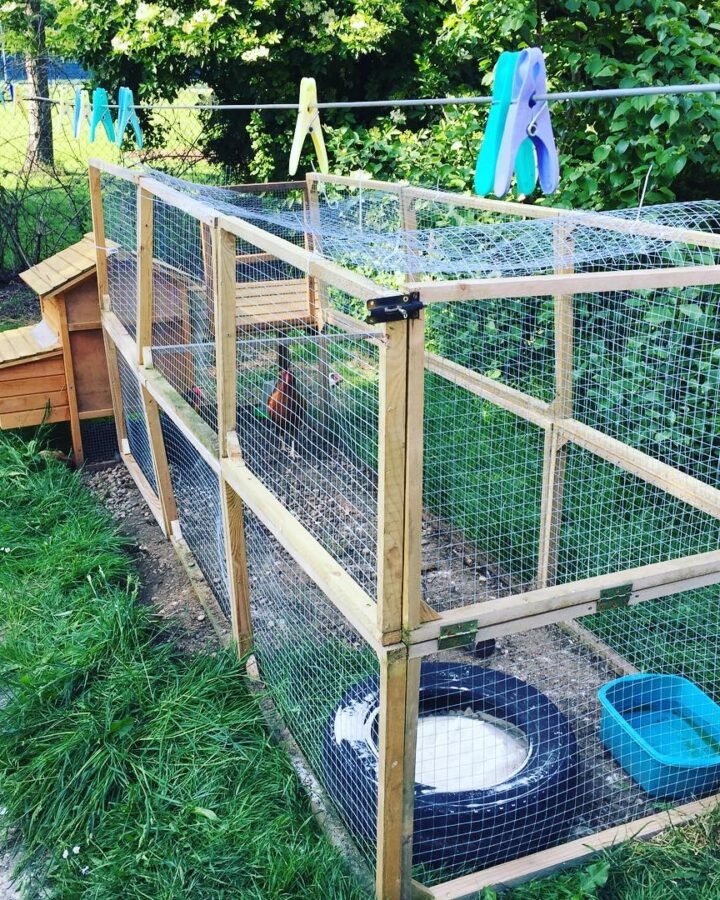
Leave a Reply